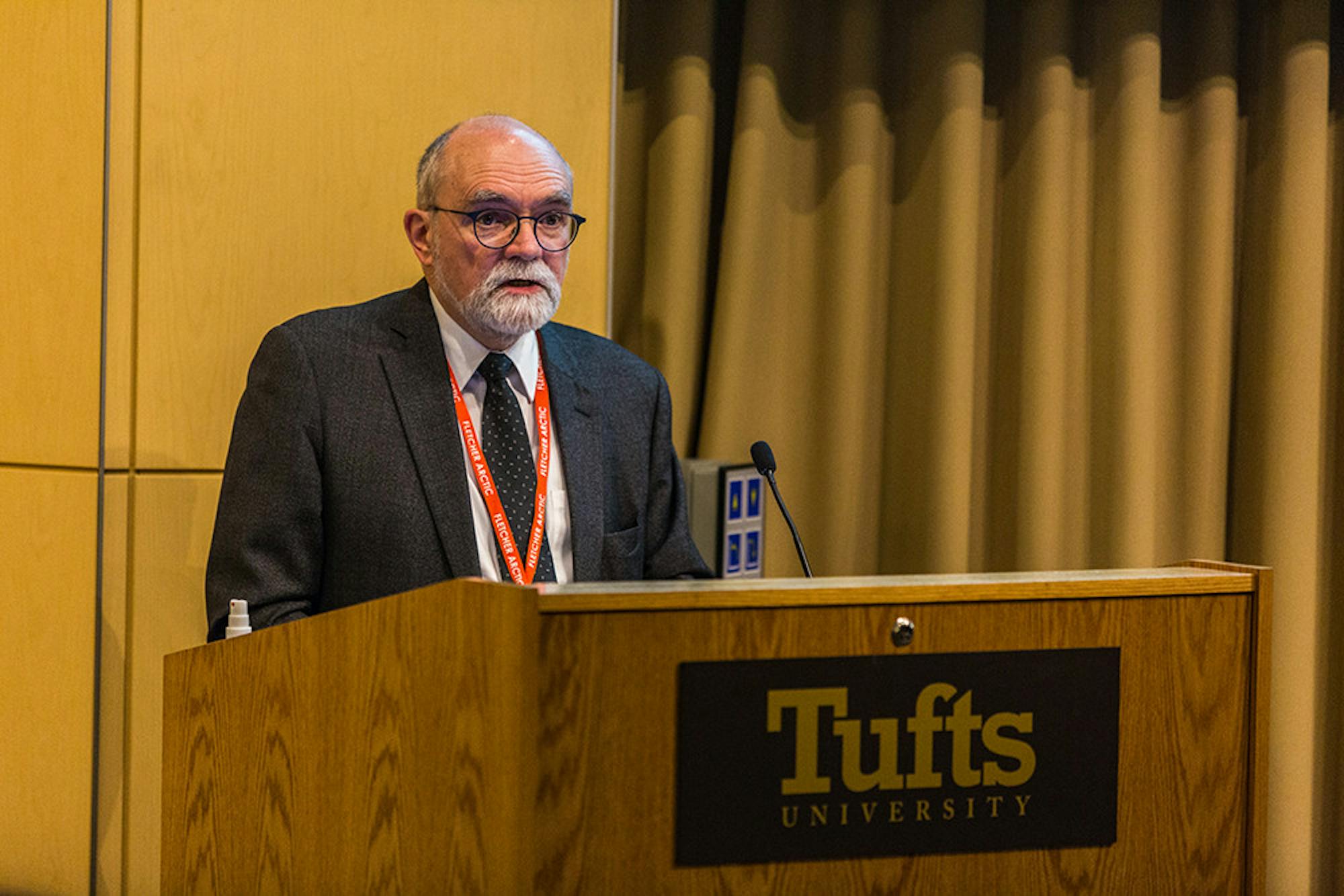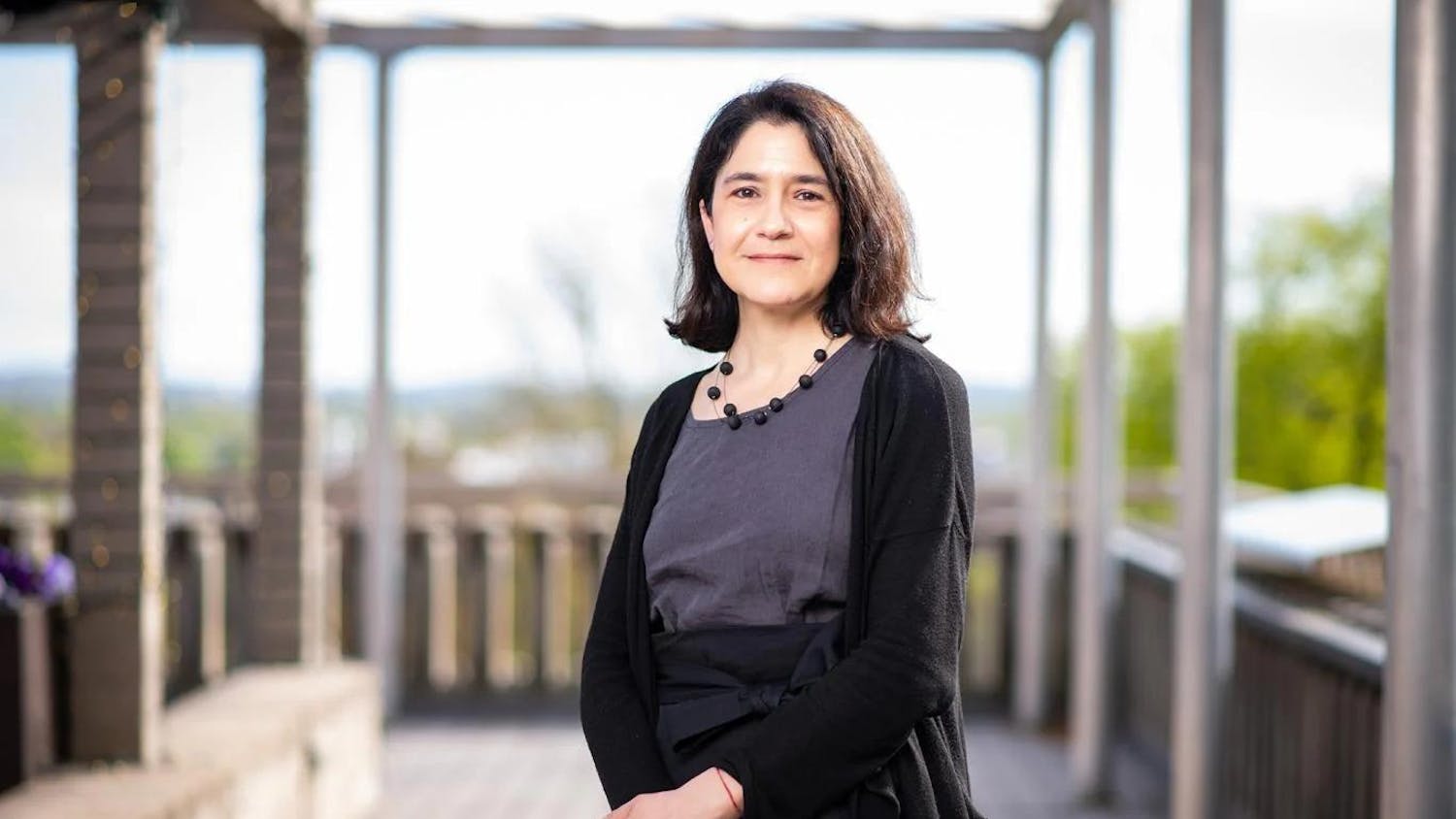Fletcher Arctic VI, a two-day conference, took place over the weekend at The Fletcher School of Law and Diplomacy. The annual Fletcher Arctic Conference has been hosted since 2012 to discuss the implications of sustainable development in the Arctic, according to the event website.Many professors, students, government officials and entrepreneurs gathered to participate in the event.
During the TEDx-style event, the program held nine separate panels focused on environmental, legal and diplomatic issues in the Arctic region. Each panel lasted about two to three hours, featuring various speakers who shared their findings on Arctic development and answered questions.
The conference began with an opening speech by Director of Diplomatic Studies Professor Alan K. Henrikson before starting with its first three panels. The second panel focused on approaches to diplomacy in the Arctic, with Robert Sauvé, chief executive officer of the Société du Plan Nord, introducing Quebec’s Plan Nord.
Sauvé explained that the Plan Nord is an economic development plan that was created by the government of Quebec to boost natural resources and mining in the northern part of the province. He explained how important it is to balance between economic and environmental issues and cooperate with the international community when planning future investments in the Arctic.
“There are different forces involved in stabilizing the economic engine of the Arctic,” Sauvé said. “The engagement with non-Arctic states that clearly have rights and responsibilities in the Arctic high-seas makes the Arctic a region that needs consistent strategies to cooperate.”
Éric Théroux, from Quebec's Ministry of International Relations and La Francophonie, elaborated on this idea in his follow-up speech. Théroux said he conducted research on local communities in Quebec and found that the life expectancy of the Inuit population was 10 years lower than that of Canada as a whole. This work has informed development decisions in the north, Théroux said.
“We want both technological and social innovation for the Inuit communities,” he said. “For the last two years, the implementation committee of Quebec has been working together to bring both technological and social innovation to the Inuit people.”
In order to train people and transfer knowledge to the local communities, Théroux said that researchers from climate change research organization ArcticNet would meet with local residents to understand and define the key issues they were facing. He explained that this was a more accessible and direct method of communication than publishing journal articles.
The conference's third panel covered the legal challenges faced in the Arctic. Timo Koivurova, the director of the Arctic Centre at the University of Lapland, explained how complicated Arctic governance is at the global, national and regional levels. In particular, he mentioned the Arctic Council, an intergovernmental group that helps coordinate sustainable development in the Arctic region.
“The High Seas area is available for all the states in the world, but the Arctic Council [consists] of eight Arctic states with 32 observers," he said. "The first thing we have to do is recognize the extreme complexity of the landscape governance in the Arctic."
Suzanne Lalonde, professor of international law at the University of Montreal, used a specific case to visualize the legal complexities of the Arctic. She presented the recent voyage of the Crystal Serenity cruise ship in the Arctic Ocean.
“There were many concerns about the harmful impact it could bring upon the marine environment,” Lalonde said. “However, the preparation process spanned three years, and the reviews were extremely positive. The voyage contains the lesson that Canada has to exercise sovereignty over the waters it claims as its own instead of just assert.”
A panel during the next day of the conference, titled "Arctic Security Scenarios," discussed the Arctic situation in relation to the United States Coast Guard. Professor of Maritime Policy Rebecca Pincus explained the big picture implications of the Arctic region's expanding role, especially given the decrease in polar ice caps as a result of climate change.
“There is new available open water for human activity,” Pincus said. “While the trend lines are clear, the interaction of change in the environmental sphere and the human activity sphere makes it highly unpredictable in the future.”
Pincus said that these changes would create increasing opportunities for communities and businesses in the Arctic, but would also cause challenges from a policy perspective, particularly for the Coast Guard, with whom she is affiliated.
Finally, the last panel, entitled “The Rise of North Atlantic Trade,” was about trade relations in northern regions and solutions to the rising question of globalization in Arctic waters.
Fulbright Scholar Anita Parlow said that distributive justice in the Arctic can only be achieved by using technological improvements to create world-class industry, in tandem with environmental concerns.
“It is also important to take into consideration the impacts of globalization to the functioning capacity of local communities," Parlow said. "We have to be careful not to let the efforts to protect the environment bypass the needs of the communities."
Tufts hosts conference to address sustainable development in the Arctic






